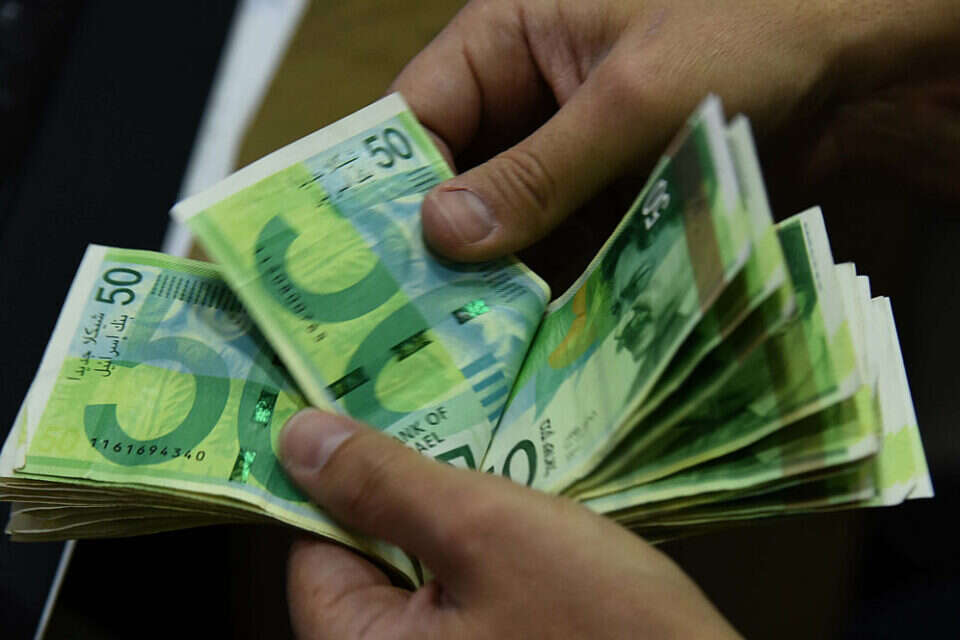The warnings of the foreign banks officially began to materialize today (Tuesday), and the dollar jumped 2% against the shekel to 3.64, in the shadow of investors' concerns about the consequences of the legal reform.
This is the sharpest jump since September last year, and the biggest swing that occurred today among all the leading currencies in the world.
Of course, the shekel weakened against all currencies - against the euro by 2%, and against the pound by 2.7%.
Traders in the foreign exchange market say that as soon as the dollar reached 3.60 and passed this threshold, many stoppluses were activated (closing a position at a loss), and from there the road to 3.64 was already short.
What ignited the rise of the dollar this morning was the approval of the reform in the first reading in the Knesset and Minister Eli Cohen's tweet, which reached the headlines of Bloomberg and was interpreted by foreign bodies as a possible violation of the Bank of Israel's independence.
The tweet, not unusual for the recent period, but its timing together with the passage of the reform in the first reading was the spark that ignited the foreign exchange market.
Although this is only a first reading, and there is still a long way to go until the final approval of all the articles of the reform, what is clear is that the capital market and especially the foreign investors do not like the fact that there is no broad consensus regarding the reform.
The warnings that are sounded every day by a number of senior economists, international bodies, high-tech industry executives and of course the non-stop demonstrations, do not contribute to calming the spirits and only fuel panic.
The abnormal fluctuation in the foreign exchange market, along with the sharp increase in 10-year bond yields may be a promo for what may happen later.
Already today, Citigroup's strategists told Bloomberg that the shekel is expected to weaken by another 8% and its new target is 3.95.
"Despite the 0.5% increase in the Bank of Israel's interest rate, the currency continues to remain under pressure from local political noise," the strategists said.
"It seems that the political situation will become more volatile in the coming weeks, when the legal reforms face a second reading in the parliament."
The London-based hedge fund manager, Trium Capital, Peter Kiesler, also told Bloomberg in the same article that "it is the legal reform that continues to weigh on the market. The size of the currency's move was quite large, but it could still weaken further."
When such articles are published on one of the largest financial portals in the world, which is difficult to accuse of being left-wing or of a deliberate desire to harm Israel's economy, this affects the capital market.
Foreign exchange traders at the foreign banks read the warnings of senior objective people and understand the message. They have no special sentiment towards Israel, and if they are convinced that the shekel will weaken, they will continue to increase short positions on it - this resembles a "snowball".
If the dollar continues to strengthen sharply, the consequences of the sharp devaluation of the shekel could be devastating for the economy - first and foremost, this could increase inflation in Israel, which for the time being refuses to decrease, which would cause the Governor of the Bank of Israel to raise the interest rate more sharply.
The Bank of Israel does have respectable foreign exchange reserves amounting to more than 200 billion dollars, and it can intervene in the foreign exchange market and sell dollars, but its influence may be negligible compared to the mass of buyers.
Finance Minister Smotrich's attempts to calm spirits today by saying in the media that he is not worried about the economy probably won't help here.
Prime Minister Netanyahu's tweet, that the Bank of Israel's independence will not be compromised, cannot really help here either.
If the government stops the legislation and changes the reform to one that is acceptable to all parties, things may return to normal.
Israel's economy is strong, and in the meantime we only got a promo for what might happen next.
were we wrong
We will fix it!
If you found an error in the article, we would appreciate it if you shared it with us

